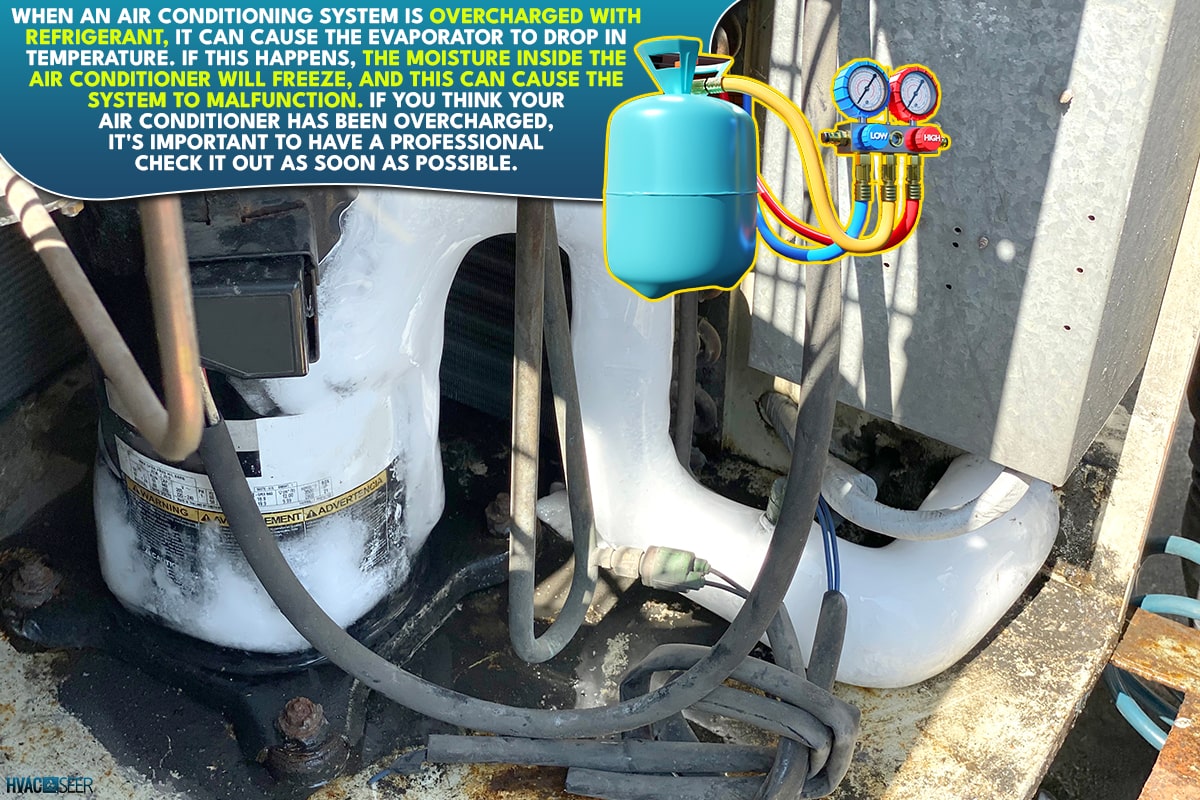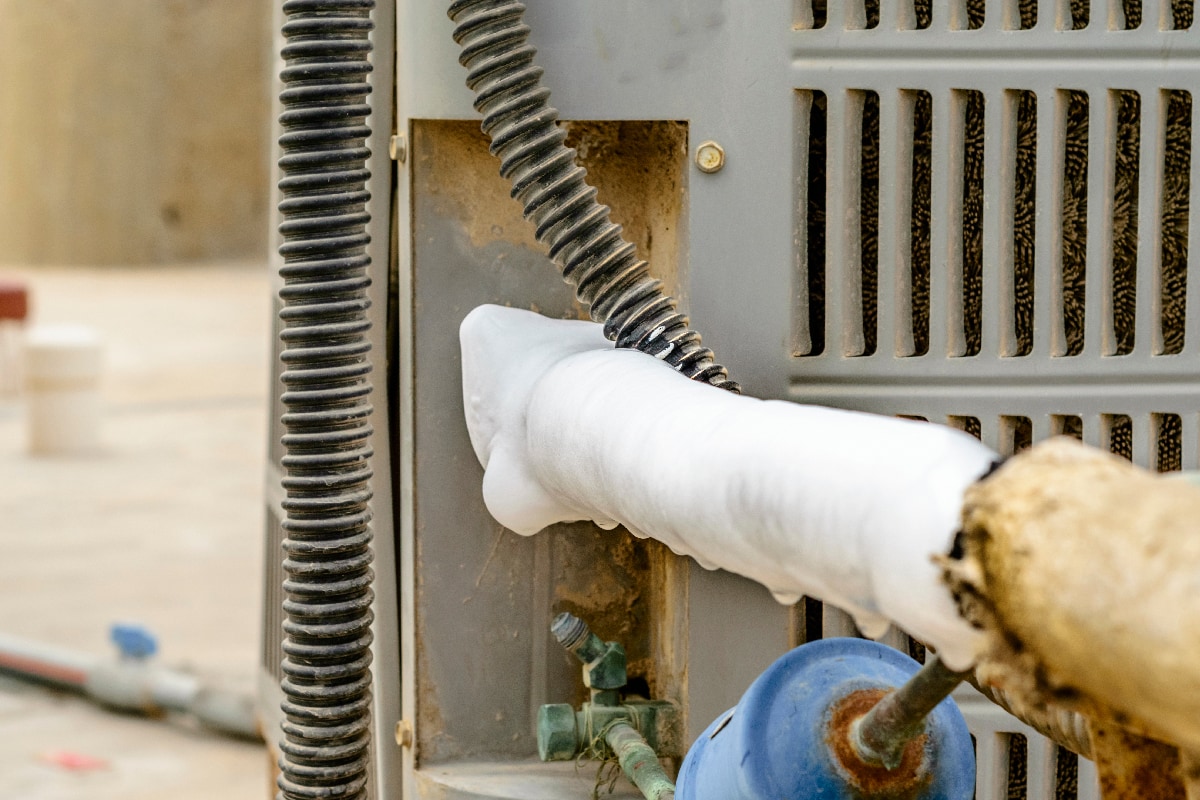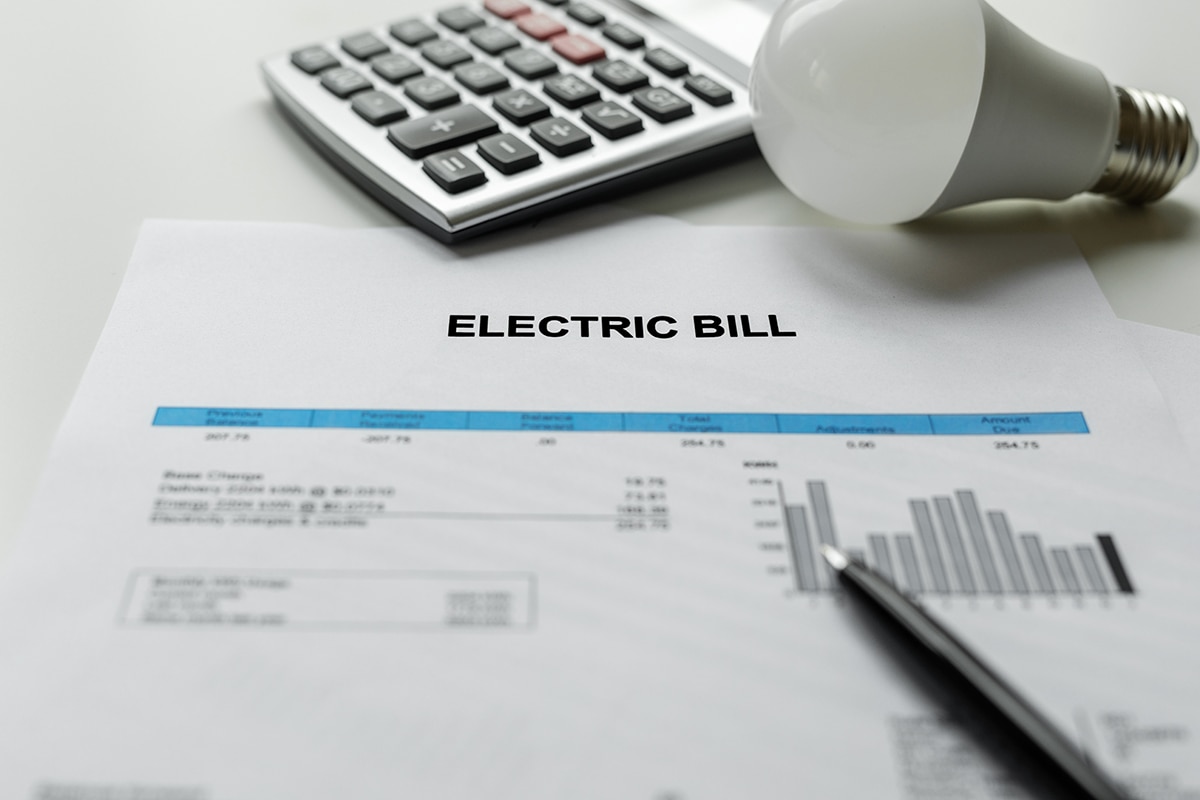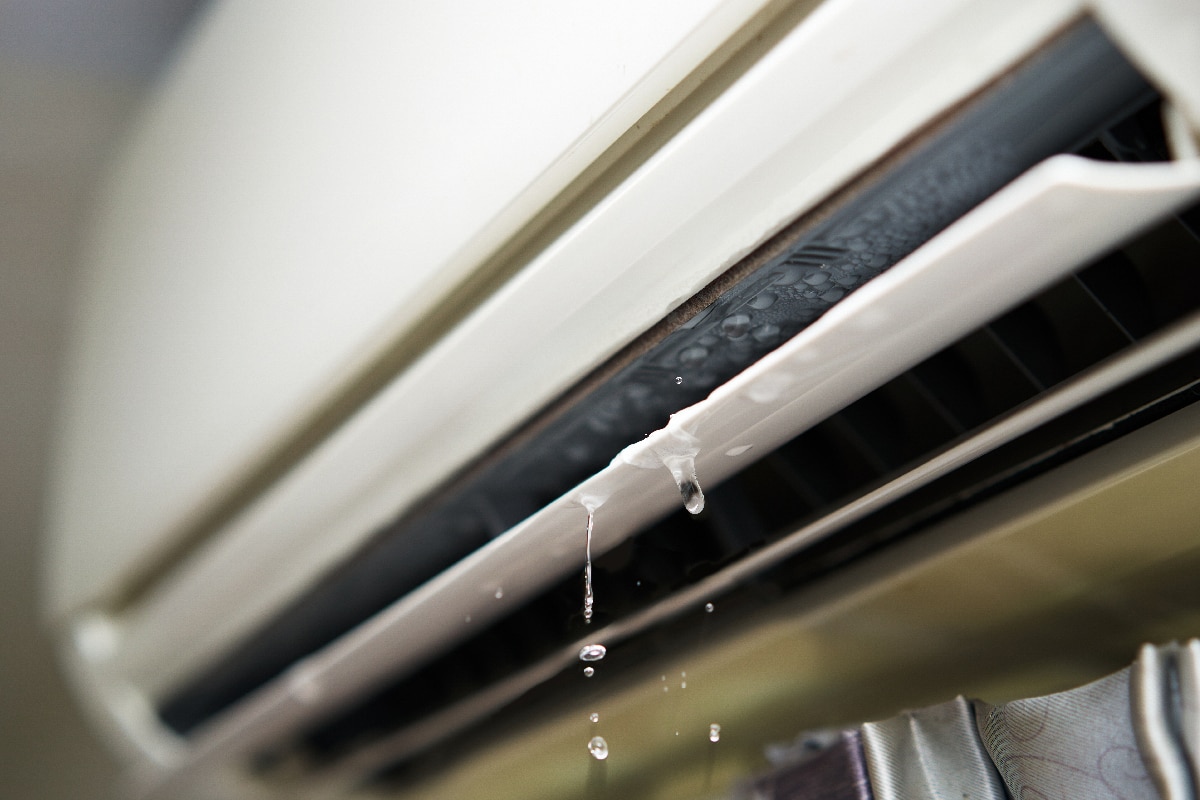If you recently had the air conditioning in your home recharged but the system is freezing up, it can be worrisome. Could this be due to the air conditioning system being overcharged? Let's take a look to see if this is a possibility.
When an air conditioning system is overcharged with refrigerant, it can cause the evaporator to drop in temperature. If this happens, the moisture inside the air conditioner will freeze, and this can cause the system to malfunction. If you think your air conditioner has been overcharged, it's important to have a professional check it out as soon as possible.
Understanding how your home's air conditioning system works can help you determine if there's a possibility that it's been overcharged. In this article, we will take a closer look at why it's imperative that your air conditioner not be overcharged and what you can do to prevent this from happening. In addition, we will answer other frequently asked questions about home air conditioners to help you keep your system running smoothly all summer long.

What Happens When An Air Conditioner Is Overcharged?
Before we begin, let's explain how an air conditioning system works. A typical air conditioner has four main parts: a compressor, two fans, an evaporator, and a condenser.
The compressor pumps refrigerant through the system. The refrigerant is a special fluid that helps to cool the air.
The first fan blows outside air over the condenser coils. These coils are full of very cold refrigerant. The air cools the refrigerant, and this helps to cool the air inside your home.
The second fan blows air over the evaporator coils. These coils are full of warm refrigerant. The air cools the refrigerant, and this helps to cool the air inside your home. The cooled air is then blown into your home through a series of ducts.
However, when the refrigerant gets low, it can't cool the coils as effectively. As a result, the compressor has to work harder to pump the refrigerant through the system. This causes the air conditioner to use more energy, which drives up your electric bill.
When the refrigerant is low, it needs to be recharged. In other words, more refrigerant needs to be added to the system. However, if too much refrigerant is added, it can cause the evaporator coils to freeze.
When this happens, the air conditioner will stop blowing cold air into your home. In addition, the ice can damage the evaporator coils. If the coils are damaged, they will need to be replaced, which is an expensive repair.
How Can You Tell If Your Air Conditioner Is Overcharged?

We already know that one of the signs of an overcharged air conditioner is that the system will start to freeze or frost over. However, there are other signs that you can look for to determine if your air conditioner is overcharged.
If your air conditioner is overcharged, you may notice:
No Or Low Airflow
If the evaporator coils are frozen, the air conditioner will not be able to blow air into your home. As a result, you may notice that the airflow is low or nonexistent. If you turn on your system and no air is coming through the vents after a few minutes, it's a sign that something is wrong.
Turn off the system, and call a professional to take a look.
High Electric Bills

If your air conditioner is overcharged, it will have to work harder to cool your home. As a result, you may notice that your electric bills are higher than usual.
If you're not sure why your bills are so high, compare them to previous months or years. If there's a significant increase, it could be due to an overcharged air conditioner.
Before calling a professional, check that air is leaking out of the ductwork. Also, check doors, windows, and other areas where air could be escaping. Also, check your air filter and make sure it's clean. A dirty air filter can restrict airflow and cause your system to work harder than necessary.
If everything looks good, then it's time to call a professional.
Squealing Noises
If your air conditioner is overcharged, it will have to work harder to cool your home. As a result, the compressor may start to make squealing noises. This is due to pressure buildup in the system. If you hear squealing noises, turn off the system, and call a professional to take a look.
Air Conditioning System Fails

The worst-case scenario is that your air conditioner will fail. If this happens, it could be due to an overcharged system. When the system fails, it can no longer pump refrigerant through the coils. As a result, your home will not be cooled.
Have a professional come over as soon as possible to take a look at your system. They will be able to determine if the system is overcharged and needs to be recharged.
What Causes An Air Conditioner To Become Overcharged?
There are two main reasons why an air conditioner can become overcharged. The first reason is due to a non-professional putting too much refrigerant into the system. The second reason is that an inexperienced professional put too much refrigerant into the system.
This is why it's imperative to call a reputable and experienced professional to service your air conditioner. They will know how much refrigerant to put into the system without overcharging it.
If you try to recharge the system yourself, you may end up putting too much refrigerant into the system. This can cause serious damage to your air conditioner and will be expensive to repair.
While it may seem like a good idea to save money by recharging the system yourself, it's not worth the risk. You could end up doing more harm than good.
How Do You Know Your A/C System Is Low On Refrigerant?
Some of the signs your air conditioning system is low on refrigerant are the same as an overcharged system. For example, you may notice:
High Energy Bills
Like an overcharged system, a system that is low on refrigerant will have to work harder to cool your home. As a result, you may see a significant increase in your energy bills.
Warm Air From Vents
If your system is low on refrigerant, you may notice that the air coming from the vents is warm. This is because the coils are not able to cool the air properly.
If you notice warm air from the vents, it's a sign that your system needs to be recharged.
Refrigerant Lines Are Frosted Over

Another sign that your system is low on refrigerant is if the refrigerant lines are frosted over. This is due to the fact the pressure is low in the lines, and the remaining refrigerant is not able to evaporate properly.
Hissing Noises
Low refrigerant can also be due to a leak in the system. If there is a leak, you may notice hissing noises coming from the unit.
If you hear any of these noises, it's important to call a professional right away. They will be able to diagnose the problem and recharge the system if necessary.
Home Never Reaches Desired Temperature
If you set your home to cool to a certain temperature but it never reaches that temperature, it could be due to low refrigerant.
This is because the system is not able to cool the air properly, so it never reaches the desired temperature. As a result, this will cause the system to cycle on and off more frequently, which can lead to higher energy bills.
Water Near System

As we mentioned earlier, low refrigerant can cause the lines to freeze or frost over. When this ice melts, it can cause water to leak near the system.
If you notice any water near your air conditioner, it's a sign that the system is low on refrigerant and needs to be recharged.
How Often Does A Home A/C Need To Be Recharged?
While there is no set schedule for recharging your air conditioner, typically, a home air conditioner only needs to be recharged every two to five years.
This is why having an annual inspection is so important. During the inspection, the technician will be able to check the refrigerant levels and recharge the system if necessary.
If you wait too long to recharge the system, it can cause damage to the air conditioner.
Final Thoughts
To avoid an overcharged unit or low refrigerant in your air conditioner, it's important to have an annual inspection. During the inspection, the technician will be able to check the refrigerant levels and recharge the system if necessary.
Nonetheless, if you notice any of the signs mentioned above, it's important to call a professional right away.
Made it to the end? Here are other articles you might find helpful:
How To Bend A Refrigerant Line Set?
